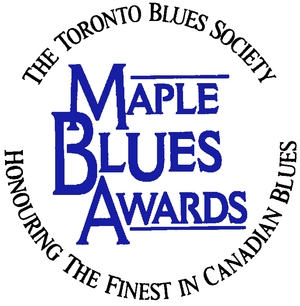
Harry forged this distinctive style by studying at the feet of the masters, first as a sound man in the blues clubs of Toronto during his formative years and then under a rigorous five-year tutelage with Vishwa Mohan Bhatt in India. Bhatt is the inventor of the 20-stringed Mohan Veena, which has become Harry’s signature instrument.
Even though he had played slide guitar for many years before arriving in India, he started back at the beginning under Bhatt’s tutelage, even re-learning how to hold the bar. From there, Manx learned Eastern scales and eventually ragas, deceptively complex and regimented musical patterns that form the basis of Indian composition.
He spent three to four hours each morning practicing in Bhatt’s home before returning that evening for a jam session with the tutor, his sons and various other fellow musicians. “Sometimes I’d throw in some blues licks in the middle,” he says, “and everyone would fall over laughing and enjoying themselves. And I thought if I can get Indian people to enjoy Western music like that, then maybe I could get Westerners to enjoy Indian music, too.” Harry decided to explore this thread of connection between the two musical traditions.
His signature style follows in the footsteps of such pioneering work as that of Joe Harriott and John Mayer and their Indo-Jazz Fusions in the 60s, John McLaughlin’s work with Shakti in the 70s, and Ashwan Batish’s innovative Sitar Power debut in 1987. Manx’s Indo-blues hybrid seems destined to be the most universally appealing yet.
Born on the Isle of Man, Manx immigrated to Ontario with his parents when he was six years old. He started doing sound at age 15 and gradually worked his way up to becoming a regular sound man at the well-known El Mocambo club in Toronto, where he worked with a slew of blues legends. While Manx doesn’t consider himself to be a blues artist per se, he does admit that blues is at the heart of much of his work. “I’ve always had one foot in the blues from those days … what I got from those artists is a groove that’s fairly similar to theirs. That’s what I’m particularly interested in … the groove, and that’s the way I play blues today”.
“I went to Europe when I was 20 and started making money as a busker,” recalls Manx. “I’ve worked only as a musician since then. Few people know that I was actually a one-man band with a drum-and-bass feel to my sound. I still have that one-man-band sound.”
Much of Manx’s time in India was spent meditating with different masters, which in turn has imbued his music with an intangible spiritual quality. “I always cloak my messages with inspirational ideas in a story,” explained Manx. “I also try and reach the listeners’ hearts rather than their minds. With the mind, there’s always a filtering of ‘I agree’ or ‘I don’t agree.’ I like to engage people’s hearts … I’ve always had more interest in my own development as a person than I had in my music. I think my music has done well partly as a result of my years of meditation … I can’t take complete responsibility. My songs are a synthesis of everything I’ve absorbed. We’re the sum of all of our experiences.”
Those years of busking on the street in various locations around the world taught him how to truly connect with and move an audience. His training in India allowed him to approach music from a different perspective, where the focus is on the song and on the transfer of energy between the performer and the listener. What makes Harry an exceptional performer is his ability to completely give himself over to the song in the moment, creating a deep well of emotion for the audience to draw from. It’s in the live setting, Manx says, that a bridge between “heavenly” India and “earthy” American blues is most effectively built.
“Indian music moves inward,” he explains. “It’s traditionally used in religious ceremonies and meditation, because it puts you into this whole other place. But Western music has the ability to move out, into celebration and dance. There are ragas that sound bluesy, and there are ways to bend strings while playing blues that sound Indian. I may be forcing the relationship between the two musical cultures, but I keep thinking they were made for each other. That idea leads me to more and more experimentation, and the journey has been great so far.”
Manx is a prolific artist, releasing nine albums in an eight-year span with no signs of stopping. He has received seven Maple Blues Awards, six Juno nominations, the Canadian Folk Music Award in 2005 for Best Solo Artist and won CBC Radio’s “Great Canadian Blues Award” in 2007.
His most recent original release, “Bread and Buddha”, is another melange of blues, roots, world and folk sounds. Harry spent almost two years carefully preparing the songs and uses full instrumentation including piano, organ, drums, base, and scored strings. The CD is a poignant exploration of the ephemeral nature of the human experience and recently received a Juno nomination for “Blues Album of the Year”
Blend Indian folk melodies with slide guitar blues; add a sprinkle of gospel and some compelling grooves and you’ll get a sound that goes down easy and leaves you hungry for more.
If you like what I’m doing, Like ---Bman’s Blues Report--- Facebook Page! I’m looking for great talent and trying to grow the audience for your favorites band! -
”LIKE”




